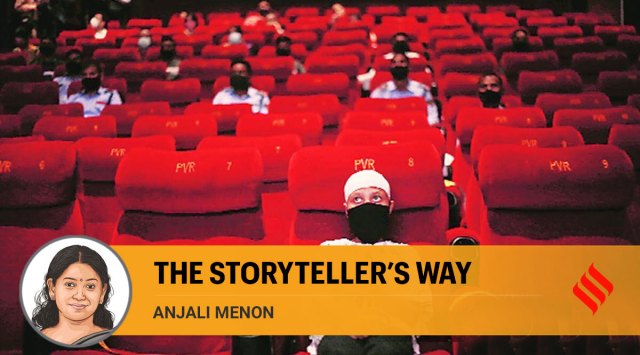
Cinema as a medium has incredible power in our country. The reach and impact of a movie can be understood when a street child tells you that there are days when he chooses to watch a movie instead of eating his daily meal. His logic is that after a meal he would be hungry soon, but a movie stays with him for so much longer, giving him hope and joy. I was stunned by these words spoken to me by a 12-year-old ragpicker.
With more than 50 per cent of its population under the age of 25 years today, our country stands poised with the possibility of immense change in the coming 25 years. And there is much that needs to change to propel us out of the weighty biases that hold us from achieving our true potential. Discriminatory practices and limitations on individual liberty, safety and opportunity that are inherited need to be scraped away like old skin. Despite all the sloganeering, when more than half of the Rs 10 billion Nirbhaya Fund for women’s safety remains unused for 10 years in a country where women so desperately need safety, it points to a lack of socio-political-cultural will. A radical cultural gear shift can help shape a different future. And among cultural tools for this purpose, there is none bigger than cinema in India today.
As a worker in Indian cinema, (an industry with a strong male-dominant narrative on and off screen), I would like to see cinema influencing people to bring about the socio-cultural shift we need. I would like to see our storytellers inspire people to think differently.
While we are aware of the power of this industry, what stops us from mobilising this power for social advancement? I have often been told that such messaging works in arthouse cinema but there is no space for it in commercial cinema. I disagree because commercial cinema has far greater reach than arthouse films and the number of times a hit song from a commercial film is played on a personal device far exceeds any other piece of content created in our country. To paraphrase Spider-Man, that kind of power comes with great responsibility. While the stars and makers enjoy the privileges and pleasures of such exalted adoration, perhaps they could reciprocate by inspiring the audience towards specific social changes.
Just as the new hairstyle of a superstar is enough to send their fans into an imitative frenzy, the love and enthusiasm to imitate spills into fashion, language and cultural behaviours too. In the past, the entertainment industry has contributed to considerable levels of toxic masculinity in this country. How about utilising the medium to undo that?
Taare Zameen Par created a sea change in the attitude towards dyslexic children from even their own parents. 3 Idiots made us look again at contemporary education and real learning. We cheered for Chak De India and the many new-generation sportswomen who were inspired by it. These are all box office hit films that engaged and entertained us while expanding their goals to raise awareness and empathy among the audience. I am keen to see our storytellers consciously ensure that their content urges the audience to counter discriminatory biases and provoke thought and action.
Yes, this ardent hope for India@100 stems from my perspective as a woman and as a filmmaker. As they say, a picture is worth a thousand words. In cinema, we have 24 pictures per second and whether we like it or not, the content we make has meaning and power. Those are 24 opportunities every second to “be the change”.
The writer is a filmmaker. This article is part of an ongoing series, which began on August 15, by women who have made a mark, across sectors